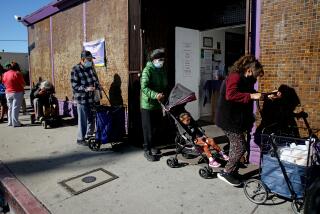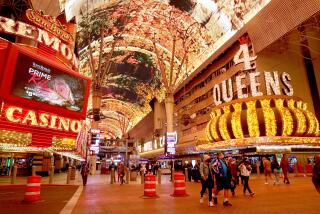Jobless in Las Vegas: Locals lean on their faith, cut back on food and cling to the past
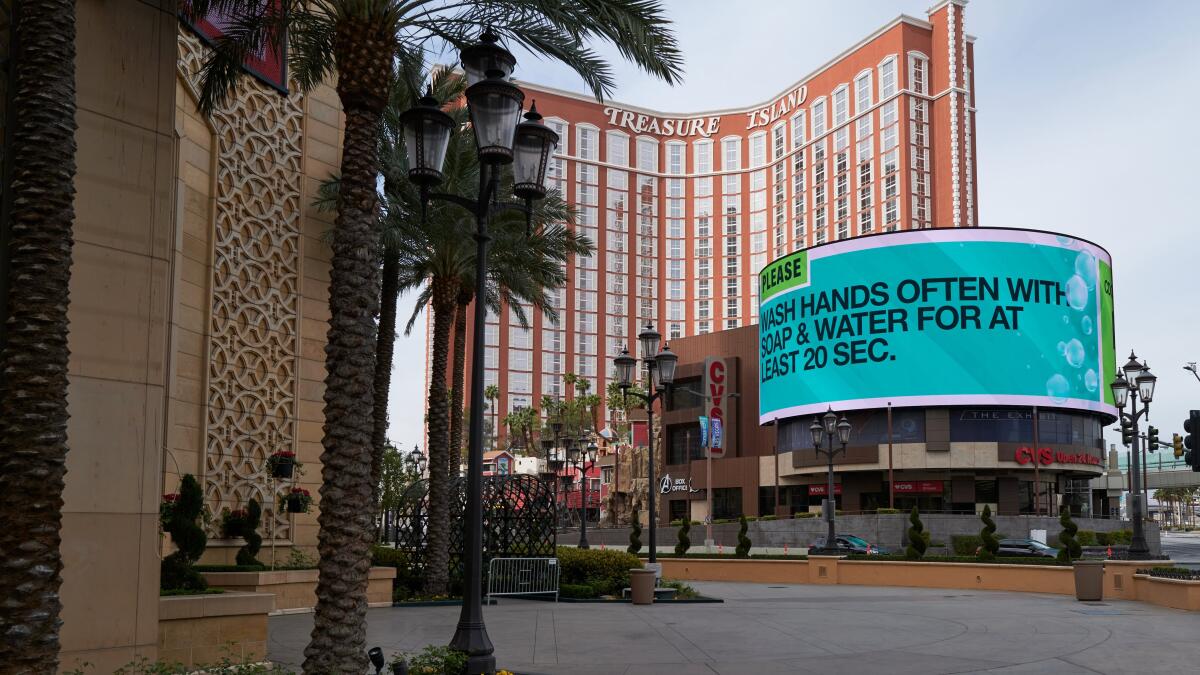
- Share via
LAS VEGAS — Michael Moore no longer allows his two young children to grab snacks from the fridge.
The 52-year-old single father, a security network programmer, is out of work. He’s looking for ways big and small to save. He knows the hard times that have fallen — brought on by a shutdown of businesses to stem the spread of the novel coronavirus — will be stubborn in their staying. He’s tight with his cash, keeps the fridge door shut.
“It’s important to think outside the box,” he said, “so I’m saving money for groceries.”
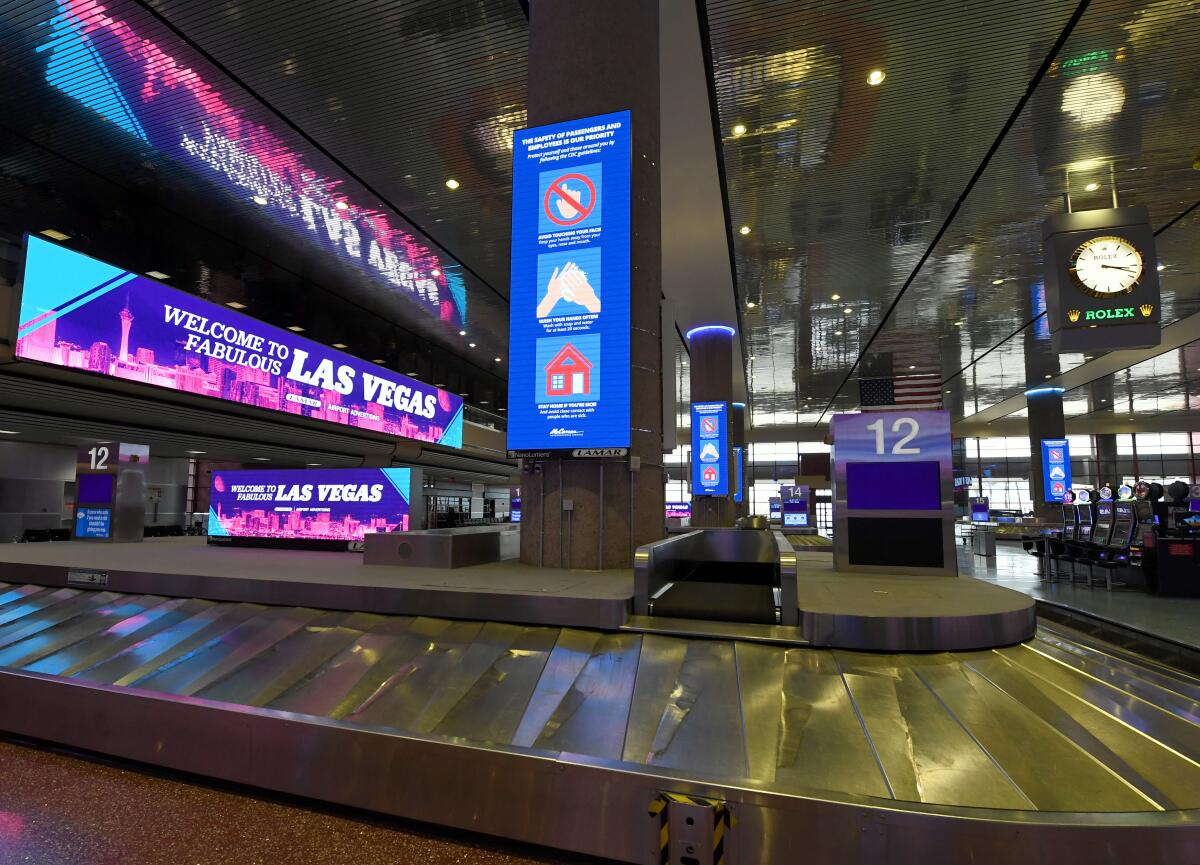
As the number of jobless rises across the nation and daily life grinds to a unprecedented halt, the deadly virus has strained household budgets for thousands in Las Vegas who find themselves against an uncompromising reality. They are among the shocking 3.3 million Americans who last week applied for unemployment benefits, according to a report released by the U.S. Labor Department.
Home to casinos and convention centers that provide more than 164,000 service industry jobs, Nevada is among the worst-hit economies in the nation. More than 93,000 Nevadans filed unemployment claims during the week that ended March 21, compared with with 6,356 from the week prior.
It is a devastating blow that has turned some to religion, like Mike Funk, a furloughed casino manager who knows well the ups and downs of the Strip, but has never witnessed such a cruel change in fortune for this city. Even in the age of social distancing, the 53-year-old Christian has found ways to share his faith with friends and family. Doing so, he says, has eased his anxious mind.
“I post Christian songs on my Facebook and people interact with me on there,” he said. “People come to my page wanting hope.”
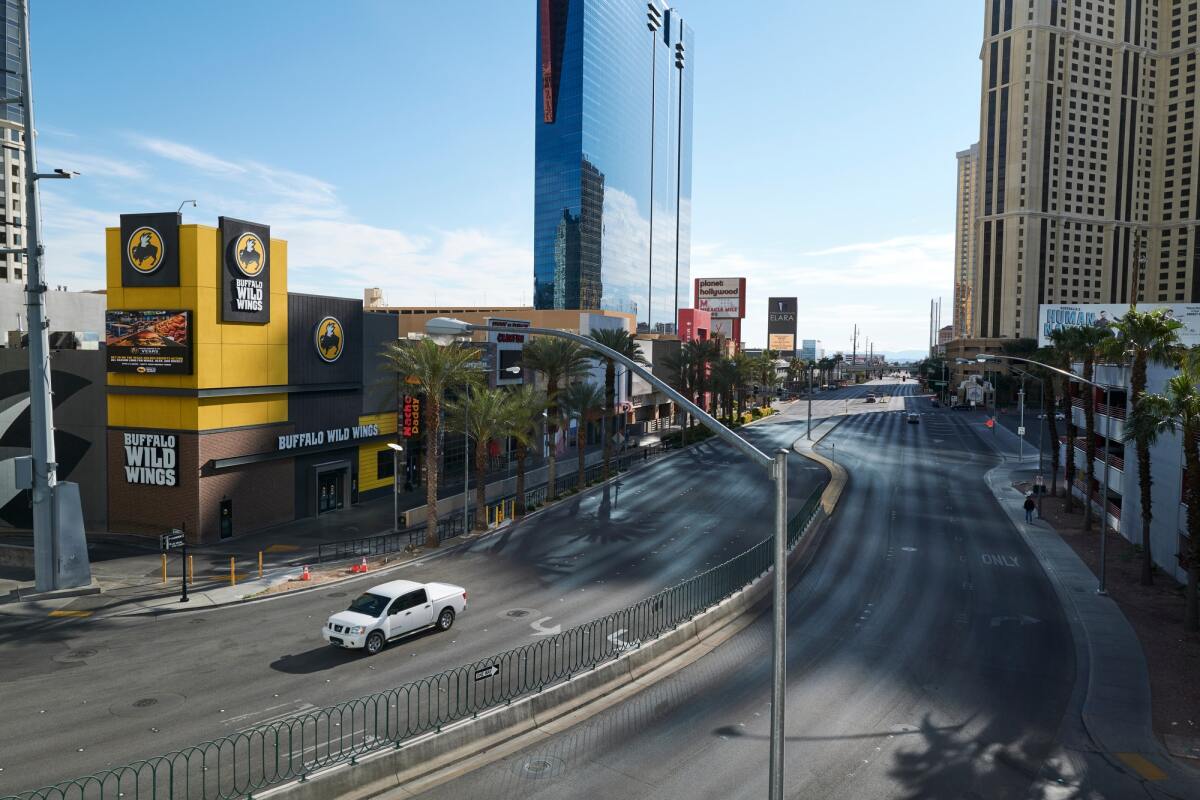
Pain has rippled through Las Vegas. Bellmen, waitresses, housekeepers and other hospitality workers on the Strip — home to a $6.6-billion gaming industry — sensed the crisis that was about to unfold days before Gov. Steve Sisolak ordered nonessential businesses to close, when casino and property owners on the Strip started to lay off their co-workers after a sudden drop in tourism.
Since then, the situation has grown more dire: Casinos have locked their doors, tourists no longer roam the Strip and the neon lights that usually tout the city’s popular entertainment have been replaced with signs that urge locals to stay home.
Some have found solace by volunteering for makeshift food pantries and other charities.
On a recent afternoon, after families received free plastic bags of groceries at a pantry in the parking lot of Renaissance Church, several churchgoers slipped on masks and gloves as they sorted through fruits and vegetables in the kitchen.
Theresa Hicks, a church member and the executive director of the nonprofit service group Calvary Downtown Outreach, had not had anything to eat since she woke up seven hours earlier. As she sat down and started to bite into a chocolate bar, a swarm of volunteers gathered around her. All had questions.
Now was not the time. She needed a minute to herself.
“I’ll come find you in a bit,” she told them.
These times have taken their toll on Hicks. Her days have been consumed by organizing and packaging food for hundreds more jobless individuals and their families than she usually does. Some volunteers who help Hicks are also out of work, including elementary school teacher Kim Carson.
“I wake up in the mornings and email parents online resources so they can teach their kids,” said Carson, who clings to whatever sense of normalcy she can from the confines of her house. “I’d much rather be with them. I’m thinking of mailing them some cards.”
The emotional toll of being on the front lines of relief coordination has yet to sink in for volunteers such as Carson and Hicks. Some families have been so devastated by the sudden loss of income that Hicks said people have confided in her about their daily torments. She’s had to refer some to mental health professionals.
By the time she goes home, she’s too exhausted to be troubled by all the emotions that run through her during the day. Now, she thinks, is not the time to dwell on herself.
“I feel blessed to be able to be in a position to help people,” she said.
Calvary Downtown Outreach started out serving the homeless over a decade ago. But what began as a program to hand clothing, soap and food to around 5,000 of the city’s most vulnerable people expanded after the economic crash in 2008. The organization now provides food and groceries to around 20,000 people within eight ZIP Codes, Hicks said.
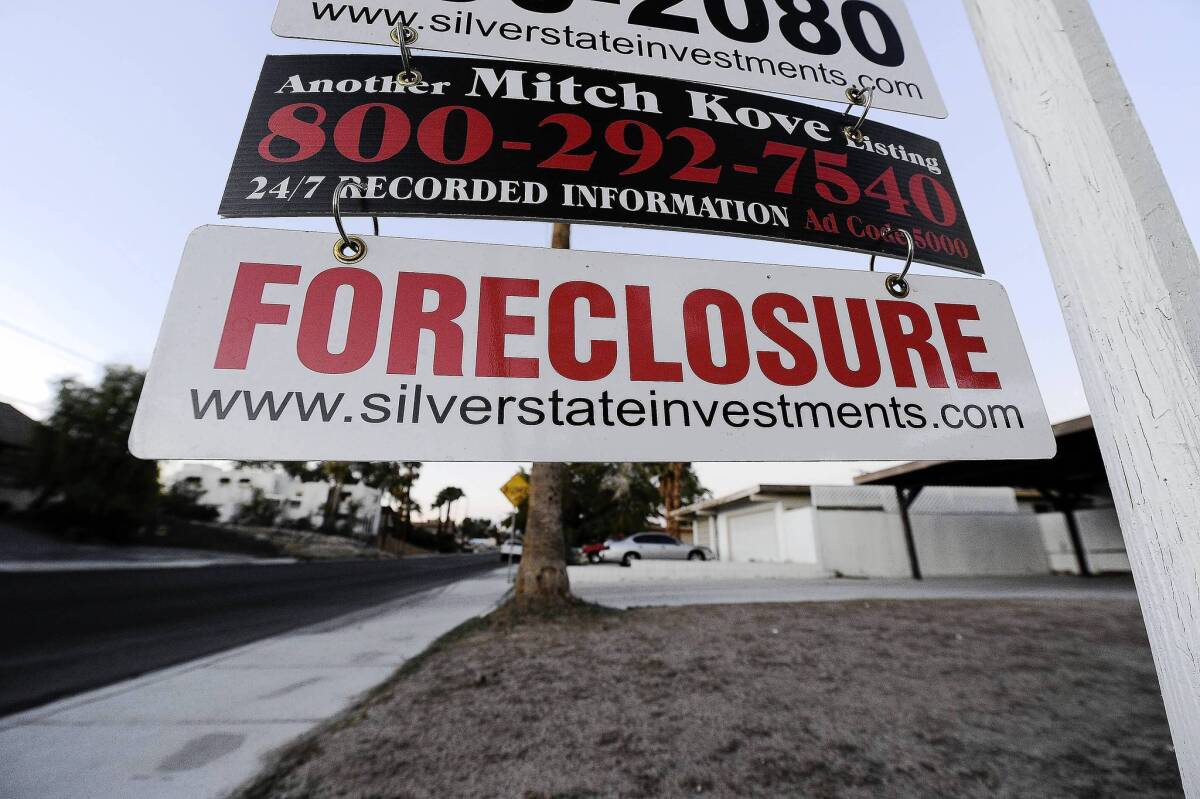
But the 2008 recession did not see such high demands as these days of the COVID-19 outbreak. Hicks said the organization usually provides food for around 70 families a week. That number has grown to 245 a week, some of them middle-class families, who pick up bags filled with food, weighing about 5 pounds each.
“I know things have changed because I see families and people drive up to us in their nice cars,” said Hicks as volunteers moved heavy pallets of carrots and apples into the corner of a room at the church. “That tells me they’ve been recently laid off because they have still been able to make car payments but can no longer afford food.”
Hicks said that after a member of a nearby charity tested positive for COVID-19 last week that operation was shut down. Her organization is one of only eight in the city that’s providing food assistance to families during the pandemic.
Then there are people like Moore, who are creating weekly budgets on Excel spreadsheets and coping by limiting what their children eat. Moore spends most days home-schooling his 11-year-old daughter and 7-year-old son inside their three-bedroom house in Clark County.
He wants his children to be self-sufficient. He’s teaching them to repair things around the house. He’s also showing his kids how to grow fruits and vegetables in the backyard. By changing his spending habits, Moore hopes that the money he has saved will keep his family afloat for six months.
“They’re able to roam around and play,” he said. “I’ve been prepared long before this crisis so I think we can adjust well.”
More to Read
Sign up for Essential California
The most important California stories and recommendations in your inbox every morning.
You may occasionally receive promotional content from the Los Angeles Times.


